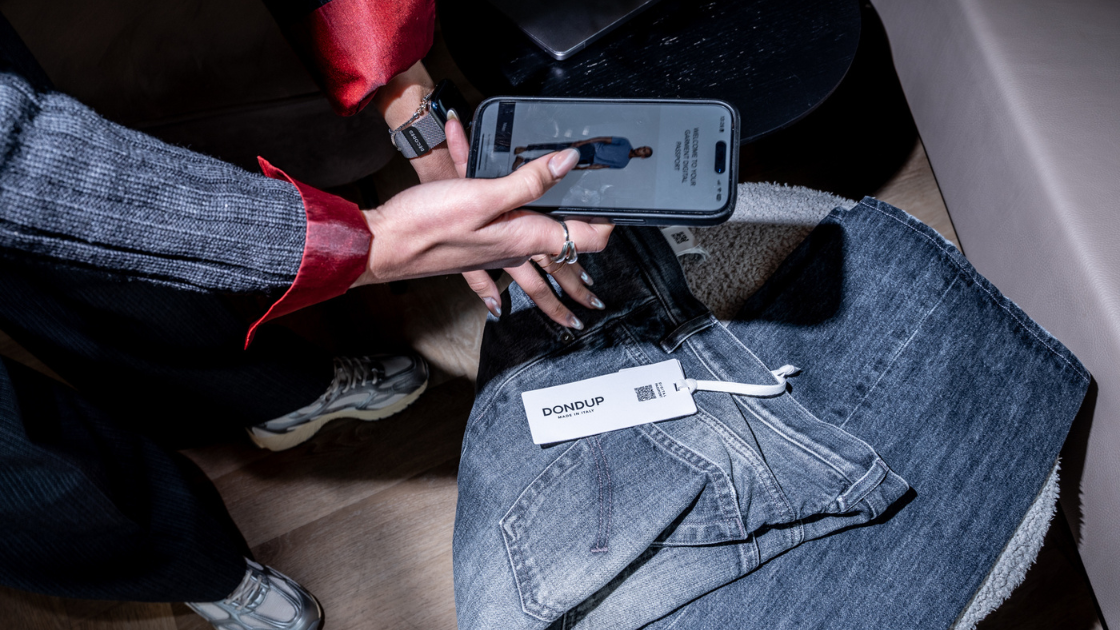The new EU regulations, including the Eco Design for Sustainable Products Regulation (ESPR) and Digital Product Passport (DPP), offer significant business opportunities for brands in the textile and fashion industry.
While these regulations require companies to adapt their processes and implement new tools, which may initially seem burdensome, they actually pave the way for brands to capitalize on the industry's transition by exploring new avenues for growth and innovation.
In this article we introduce the business opportunities arising from these regulations:
Consumer Engagement and Relationship Building
With the adoption of EU-mandated solutions, particularly the Digital Product Passport (DPP), brands have a unique opportunity to improve their connection with customers.
By disclosing comprehensive information about the manufacturing processes, sourcing of materials, and the overall environmental impact of their products, brands can significantly enrich the consumer experience.
Greater transparency not only makes brands compliant with the regulations, but it also fosters a deeper, more meaningful relationship between brands and their consumers, building trust and long-term loyalty.
The tools that brands are developing to communicate this information are designed to go beyond mere data sharing—they create platforms for interaction and engagement. These tools, such as interactive apps, QR codes on product labels, and immersive digital experiences that are linked to the adoption of DPP, allow consumers to delve into the story behind each product and connect with the brand on a more personal level.
By providing accessible and engaging ways for consumers to explore product story, these tools turn transparency into a two-way conversation, ensuring consumers make more informed purchasing decisions while strengthening their bond with the brand.
Efficiency and Supply Chain Resilience
Traceability is a crucial aspect of the EU regulations, requiring brands to gain deeper insights into their supply chains. By collecting these insights, brands can identify inefficiencies, minimize waste, and ensure that all components align with sustainability standards.
This enhanced visibility not only streamlines operations but also promotes stronger and more collaborative relationships with suppliers. By fostering partnerships grounded in transparency and shared sustainability objectives, brands can work more effectively with suppliers to address issues, optimize procurement processes, and align production schedules.
Closer collaboration with suppliers leads to greater overall efficiency, cost reductions, and a more resilient supply chain that can better adapt to market changes and disruptions.
Business Models Innovation
The Eco Design for Sustainable Products Regulation (ESPR) strongly supports circular economy initiatives, emphasizing eco-design and product longevity, which opens the door for brands to explore circular business models like resale, rental, and repair services.
By extending the life cycle of their products, brands can diversify their offerings and tap into new revenue streams, appealing to consumers who prioritize mindful consumption, or the ones that just shift to the second hand market for convenience.
One key opportunity lies in launching resale projects, where brands can buy back and resell their own products, capturing value from items that might otherwise end up in the second-hand market. This not only provides an additional revenue stream but also allows brands to maintain control over their product's lifecycle and brand experience.
Repair and refurbishment services also present a viable business model, allowing brands to offer repairs, sell refurbished items, or provide subscription-based maintenance plans. This approach not only extends the lifespan of products but also fosters a deeper relationship with customers who value durability and sustainability.
On top of that, brands can introduce upcycling initiatives, where returned or unsold products are creatively transformed into new items, often in limited-edition collections. Subscription models for product updates or replacements, can encourage consumers to keep products in circulation longer while providing a steady revenue stream.
Competitive Positioning and Future-Proofing
Proactively adopting the Eco Design for Sustainable Products Regulation (ESPR) and Digital Product Passports (DPP) enables brands to secure a strong competitive position and future-proof their business in a rapidly evolving market.
By embracing these regulations early, brands not only gain a significant competitive edge and establish themselves as industry leaders but also influence the shaping of industry standards and best practices, setting benchmarks that others will follow.
This proactive approach minimizes the risks associated with non-compliance, such as fines, product recalls, or damage to brand reputation, and ensures that brands are well-prepared for future regulatory developments.
Furthermore, as consumer demand increasingly shifts, brands that align with transparency and impact requirements are better equipped to meet this growing demand, avoid obsolescence, and maintain relevance in the market, ultimately securing their place as forward-thinking and leaders in the industry.
Investment and Partnership Opportunities
By forming strategic partnerships with technology providers, recyclers, and other key stakeholders, brands can enhance their impact reduction initiatives and leverage each partner's strengths to drive growth and innovation.
These collaborations can lead to the development of advanced solutions such as digital traceability systems, efficient recycling processes, and innovative materials, enabling brands to achieve their goals more effectively.
Through these synergies, brands not only boost their environmental impact but also unlock new avenues for business expansion and differentiation in an ever-changing and competitive market.
The presented opportunities highlight that complying with the ESPR and DPP goes beyond meeting regulatory requirements; it is a strategic decision that can fuel growth, elevate brand value, and push innovation in the fashion industry.
At Renoon, we recognise the difficulty in identifying the right tools to effectively adopt and scale traceability solutions to prepare for regulations while gaining competitive advantage.
We have an open and collaborative approach with businesses and solutions, integrating with many of them.
Please reach out to info@renoon.com or Book a Demo.








.png)
.png)
.png)


.png)
.png)
.png)


.png)


















.png)

.png)
.png)
.png)
.png)
.jpg)
.png)
.png)



.png)
.png)


.png)
.png)

.png)


